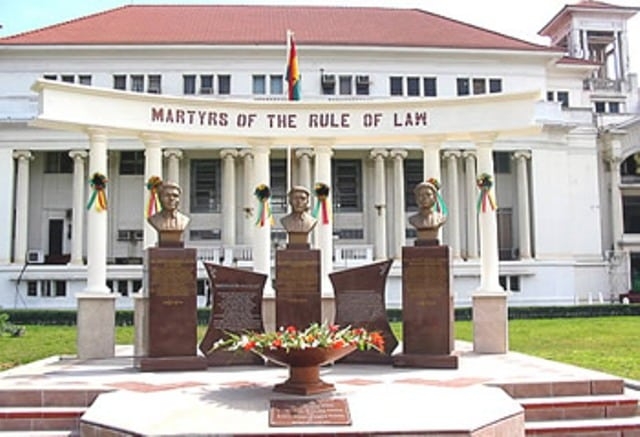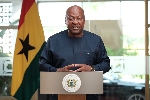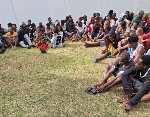It’s ‘unconstitutional’ for chiefs to endorse political party candidates – Supreme Court
 Ghana's Supreme Court
Ghana's Supreme Court
It is unconstitutional for chiefs to endorse political party candidates, Ghana’s Supreme Court has unanimously held.
It is, however, permissible for chiefs to praise or laud the policies of candidates, the court noted.
The November 2022 determination of the court said the decision is “consistent with the role of a chief as a champion and an advocate for the welfare and interests of their communities”.
Justice Emmanuel Yonny Kulendi, who authored the judgment, said chiefs must not be seen to be taking sides in political contests.
He sat on the mater along with Justices Jones Dotse, Gabriel Pwamang, Nene Amegatcher, Prof Ashie Kotey, Mariama Owusu and Lovelace Johnson.
The case was filed by legal practitioner Elorm Kwame Gorni against the Attorney General.
Mr Gorni had urged the apex court to interpret “active party politics” as used in Article 276(1) of Ghana’s Constitution, which provision states: ‘A chief shall not take part in active party politics, and any chief wishing to do so and seeking election to Parliament shall abdicate his stool or skin’.
His prayer to the court followed the endorsement of the 2020 presidential candidates of both the New Patriotic Party and the National Democratic Congress.
The Attorney General, however, held a different view
He argued that the word “active” is “clear, unambiguous and admits of no interpretation”, pointing out that “elective political office without more cannot be said to constitute an engagement in active party politics”.
In his view, chiefs’ right to freedom of speech and expression, as well as freedom of thought, conscience and belief, could not be curtailed.
The Supreme Court said the phrase “active party politics” merited interpretation, as far as what the “exact contours or boundaries of what constitutes such participation” was concerned.
Justice Kulendi said since chiefs occupy an elevated position in the social order and play an influential role in the governance and development of their communities and the country, “it is on account of the exceptional social and public status of chiefs that although chiefs are not public officers, the constitution disqualifies certain persons, notably persons convicted of offences involving fraud, dishonesty or moral turpitude from being chiefs.
“It is the same heightened concern with preserving and protecting the dignity of the chief’s office that partly underpins Article 276(1)’s banning of chiefs from taking part in active party politics.”
Source: ClassFMonline.com
Trending News

Ghana is “rising again,” President Mahama declares in 2026 New Year message
21:45
V/R: 15 arrested after sporadic shooting at Ho central mosque, 7 hospitalised
12:19
A/R: Police arrest suspect for conspiring to commit robbery at Manso Abrense
21:27
GoldBod dismisses claim of losses as “imaginary”
12:00
2024 Adabraka ₵7.5m daylight jewellery shop robbery: Police arrest suspect
19:29
141 arrested in major cybercrime crackdown targeting MoMo fraud, online scams
10:36
Tema police foil robbery attack at Afienya-Mataheko
00:04
Awutu Senya East MP, MCE engage security agencies to review security situation
10:07
“You Are a Destiny Changer” — Beneficiary’s story moves audience at Dr Adutwum thanksgiving event
23:16
Ghana Medical Trust Fund engages Ghana Health Service, HeFRA on strengthening health system reforms
09:50




